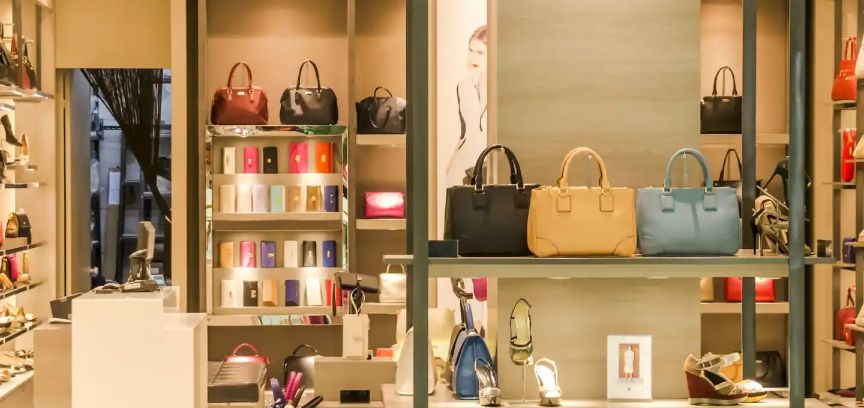Fashion Sustainability: Brands Leading the Green Revolution
4 min read
17 Jul 2024
The fashion industry, long associated with glamour and excess, is undergoing a transformation towards sustainability. As concerns about environmental impact and ethical practices grow, many fashion brands are redefining their strategies to embrace eco-friendliness and ethical production. In this article, we'll explore some of the leading fashion brands that are at the forefront of the green revolution.
Patagonia:
Patagonia has been a pioneer in sustainable fashion for decades. The brand is committed to producing high-quality outdoor clothing while minimizing harm to the environment. They use recycled materials, organic cotton, and fair trade practices in their supply chain. Patagonia also encourages customers to repair and recycle their clothing through initiatives like the Worn Wear program.

Eileen Fisher:
Eileen Fisher is known for its timeless and sustainable designs. The brand focuses on using organic and sustainable materials such as Tencel and organic cotton. They also have a take-back program where customers can return old Eileen Fisher garments for store credit, promoting circular fashion.
Stella McCartney:
Stella McCartney is a luxury brand with a strong commitment to sustainability and animal welfare. They avoid using leather, fur, and other animal-derived materials in their designs. Instead, Stella McCartney uses innovative alternatives like vegetarian leather and sustainable viscose.
Veja:
Veja is a footwear brand that prioritizes ethical and sustainable practices. They use organic cotton for their canvas and source wild rubber from the Amazon rainforest. Veja is also transparent about their production processes and pays fair wages to workers in Brazil.
Reformation:
Reformation is a brand that combines fashion with sustainability effortlessly. They focus on eco-friendly materials, such as Tencel, and use a RefScale to track the environmental footprint of each garment. Reformation is also known for its zero-waste commitment and ethical production practices.
Allbirds:
Allbirds specializes in sustainable footwear made from materials like merino wool, eucalyptus tree fiber, and sugarcane. Their production processes prioritize reduced carbon emissions and waste. Allbirds is also certified by organizations like the Carbon Trust.
Amour Vert:
Amour Vert, which means Green Love in French, lives up to its name by using eco-friendly materials like organic cotton, Tencel, and recycled polyester. They prioritize ethical manufacturing in the United States and offer a Buy a Tee, Plant a Tree program.
People Tree:
People Tree is a pioneer in fair trade and sustainable fashion. They collaborate with artisans and farmers in developing countries to create ethical and eco-friendly clothing. People Tree focuses on transparency and empowering communities in their supply chain.
Pact:
Pact is known for its organic and affordable basics, including clothing and bedding. They use organic cotton and prioritize fair labor practices. Pact is committed to creating products that are good for both people and the planet.
Amour Denim:
Amour Denim specializes in sustainable denim, using organic cotton and environmentally friendly dyeing processes. They are also transparent about their production and promote recycling and upcycling of old denim.
Ganni:
Ganni is a Danish brand that combines fashion-forward designs with sustainability. They are working towards sourcing 100% certified organic cotton and have initiatives to reduce their carbon footprint and water usage.
ABLE:
ABLE is a brand that focuses on ethical fashion and transparency. They produce clothing, footwear, and accessories while paying fair wages and providing opportunities for women in vulnerable situations. ABLE publishes their wages to promote transparency.
Outerknown:
Outerknown, co-founded by professional surfer Kelly Slater, emphasizes sustainable and ethical practices. They use recycled materials like Econyl and organic cotton for their clothing. Outerknown also partners with Fair Trade Certified factories.
H&M Conscious Collection:
H&M, a global fashion giant, has launched its Conscious Collection, featuring sustainable materials like organic cotton, recycled polyester, and Tencel. The brand aims to close the loop on fashion by promoting recycling and circular fashion practices.
Nudie Jeans:
Nudie Jeans focuses on sustainable denim and offers a free repair service for their products. They use organic cotton and have transparent supply chains. Nudie Jeans encourages customers to extend the life of their jeans through responsible care.
Conclusion:
These fashion brands are leading the green revolution by prioritizing sustainability, ethical practices, and transparency. Their efforts are not only transforming the fashion industry but also inspiring consumers to make more conscious choices. As consumers, we can support these brands by choosing eco-friendly and ethical fashion, promoting a sustainable future for the fashion industry. By doing so, we contribute to a positive impact on the environment and the lives of workers in the fashion supply chain. Fashion sustainability is not just a trend; it's a movement towards a better, more responsible fashion industry.



